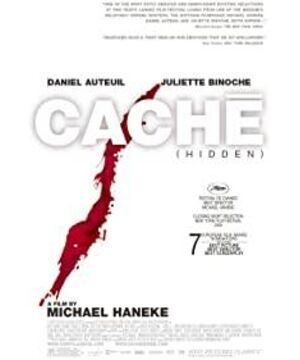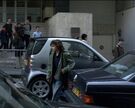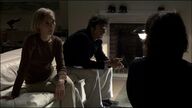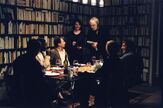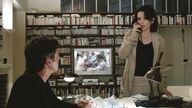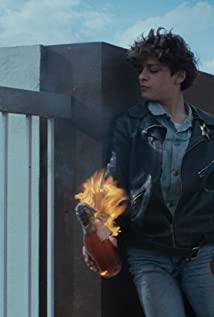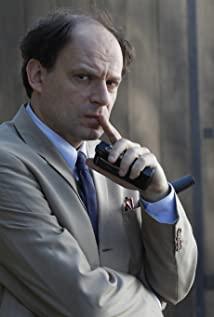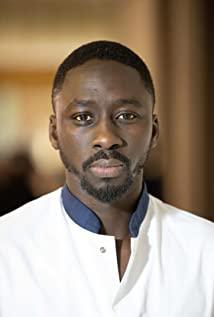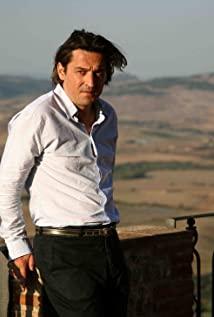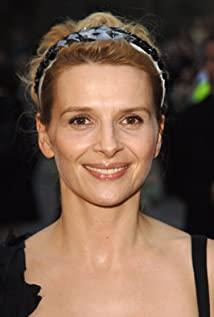The first was the accusations and suspicions that began between George and his wife, accusations that tormented each other. They began to speculate who actually directed the scene. At first, they suspected that it was a prank by their son Pierre's classmates. However, the second and third videotapes that followed made them think that this was not a prank, but a deliberate act by a hater. Even more disturbing is George, whose unease comes from a disgraceful past hidden deep within him.
The second videotape captured the scene in George's hometown, which made George begin to search for enemies in his memory, and then he concluded that a childhood friend of his was seeking revenge against him. (However, where is the hatred for no reason?) So, George returned to his hometown, found his childhood friend, an Algerian in France, through the guidance of the videotape, and questioned him about the source of the videotape. After not seeing each other for many years, the two did not show the slightest closeness, and George did not show any surprise. Algerians are very surprised, uncomfortable with the sudden appearance of a famous TV presenter in their dark, damp, cold home. George went straight to the point and threatened the Algerians that it would be against him if he didn't tell the truth or if he sent them the tapes again. George left after speaking. In the dialogue between the two, they mentioned their childhood exchanges. Although they did not say what the hatred was, we felt that a hidden story was slowly unfolding.
What happened in George's childhood?
What happened next was even more bizarre. George received a third videotape of his conversation with the Algerians that day. And the videotape was mailed to the boss of George's TV station. This made George panic even more. Meanwhile, son Pierre disappeared. These gave him more reason that the Algerians were harassing him, so he used the force of the police to arrest Algerians and his son.
However, when his son Pierre returned home safe and sound the next day, it turned out that he had forgotten to go home while playing at his friend's house. In fact, while both parents were tormented by the videotape incident, son Pierre was being tormented by something else - he suspected that his mother had been unfaithful to his father. Because of the mysterious and bizarre actions that his mother and father had done because of the videotape incident, Pierre was very distressed. Therefore, in this family, the relationship between mother and son, father and son, and husband and wife are all facing collapse. The videotaped events are made more complicated by the son's return. Isn't that what the Algerians did? However, there is a force that has always convinced George that it is the Algerians' quest for revenge. Later, he confessed to his wife some of the truth of the incident: it turned out that the Algerian parents were killed by the French in the October 17, 1961 massacre. At that time, there was an anti-French riot in the Algerians in France, and the government dispatched military police to suppress the parade. Many people died, their bodies were thrown into the Seine River, and little Algeria became an orphan. Because his parents were long-term workers in the George family before they died. So, George's mother decided to adopt the little Algerian boy.
When George and his wife told the story, they only understated that he had badly injured and slandered the little Algerian boy. However, the wife asked back: Could it be just a serious injury that would cause such a big hatred?
This question is the crux of the film. In fact, viewers also have this question. If it was just such a simple reason, how could George's "ghostly" self-phobia explode so quickly and violently? Clearly, George is lying. Smart viewers can see that in the first video tape and the third video tape, there is a continuous picture of a black child vomiting blood, and the black child is thin and helpless hiding in the corner. Obviously, this picture is not the real scene in the video, but the scene that appeared continuously in George's mind, that is to say, the "ghost of the old days" in George's heart was inspired by the video. His childhood scandals, his injuries to Algerian boys, caused him to have a "ghost in his heart". We can imagine that if the camera tape was not taken by the Algerian boy, then it is obviously the self-torture of George with a ghost in his heart. It was not that the Algerians did not forgive him, but that he himself could not forgive himself. The director interspersed the relationship between the Algerian boy and George through the content of the video to reflect George's intense inner struggle, which is really wonderful. (Of course, this will also make the audience mistakenly think that those are also the contents of the videotape)
The next scene was even more astonishing. After the Algerian was released from prison, he found George again. In front of George, he cut his throat and committed suicide. George came home hours later and told his wife about the Algerian suicide. When his wife pressed him if he had called an ambulance and notified the police, George said no. Obviously George had no intention of saving the Algerian at all. All he thinks about is himself and not letting these things come to light. Later, the Algerian son approached George and said, "You deprived my father of his education. You taught him to hate."
It turned out that the Algerian was adopted by George's parents decades ago, shortly after they were adopted. Sent to an orphanage. As the Algerian son said: "The orphanage does not teach people to love, but to teach people to hate. However, I am not an impolite child. My father taught me to be polite." , and the attitude of George and his wife towards a black man after he was hit by a bicycle at the beginning of the film, which reflects the serious and deep racial crisis in France. The end of the film echoes the beginning, the same camcorder-style shot: the school of George's son Pierre, the students are out of school, they are quiet and self-sufficient, sitting on the steps chatting, many parents come to pick the children home . However, at this time, what the audience thinks is what the Algerian said: You deprived my father of the right to education; the orphanage does not teach people love, only hate. ” The whole film interprets violent political conscience and justice vividly. When Juliette Binoche, who plays his wife, calls, a series of scenes of the Middle East war are playing on TV: death, starvation, then a government spokesman for several days. Seconds of speech... The world war has been transformed into an appreciative scene broadcast on TV stations, countries are whitewashing their own actions, no one really stands in the position of other countries, everyone is selfish. (George's TV station, When editing a discussion of poets, some people’s conversations were cut off, and the facts were covered up and beautified by means of cutting and splicing.) All unreasonable things are packaged as reasonable, just like George telling his wife about what he did to Algerian boys in his childhood do.
George sleeps repeatedly in the film: he carefully closes the curtains, bridges every gap in the sunlight, and falls asleep in a dark and unknown environment - isn't this a good breeding ground for collective amnesia? ? In the dream, he returned to his childhood, and the Algerian boy became the nightmare of his life, tormenting him, and also torturing the wife and children around him in a deformed way. But what was it that was tormenting him? Is it just simple hatred between children? Obviously not. It is a crime committed by one nation against another nation. This kind of crime includes everyone and swallows it. Although the world has changed, it will still return to the world one day, like a ubiquitous invisible camera, Find those involved and their descendants and tell them: "It's not over yet. No one is spared." Afro-Arab immigrants are huge in French society but will never be able to integrate into mainstream society. German director Michael Haneke led the French to re-examine their national conscience. In 2005 he wrote and directed the film "Hidden Camera" which finally won him the best director award at the Cannes Film Festival.
About the author: Yuan Yongping, a female poet, has won the DJS Poetry Collection Award, the Peking University Weiming Poetry Award, and the Southern Poetry Nomination Award. Author of a collection of poems "Private Life". Now works for a newspaper in Harbin.
View more about Caché (Hidden) reviews


